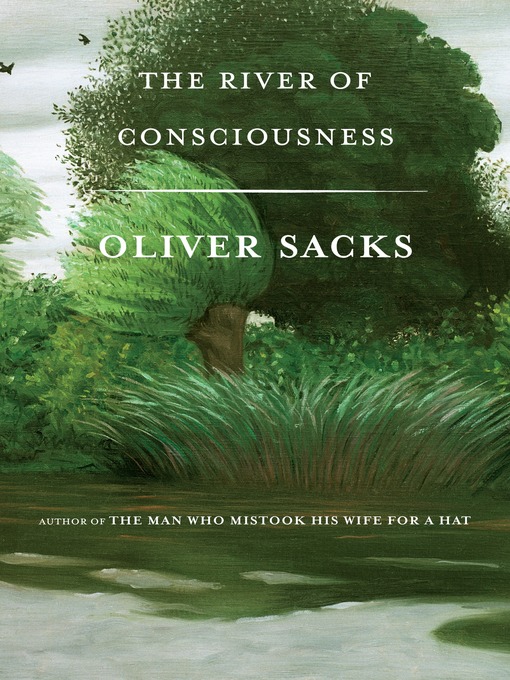Oliver Sacks, a scientist and a storyteller, is beloved by readers for the extraordinary neurological case histories (Awakenings, An Anthropologist on Mars) in which he introduced and explored many now familiar disorders—autism, Tourette's syndrome, face blindness, savant syndrome. He was also a memoirist who wrote with honesty and humor about the remarkable and strange encounters and experiences that shaped him (Uncle Tungsten, On the Move, Gratitude). Sacks, an Oxford-educated polymath, had a deep familiarity not only with literature and medicine but with botany, animal anatomy, chemistry, the history of science, philosophy, and psychology. The River of Consciousness is one of two books Sacks was working on up to his death, and it reveals his ability to make unexpected connections, his sheer joy in knowledge, and his unceasing, timeless project to understand what makes us human.
Read by Dan Woren, with the Dedication and Foreword read by Kate Edgar
-
Creators
-
Publisher
-
Release date
October 24, 2017 -
Formats
-
OverDrive Listen audiobook
- ISBN: 9780804192361
- File size: 168643 KB
- Duration: 05:51:20
-
-
Languages
- English
-
Reviews
-
Publisher's Weekly
Starred review from September 25, 2017
Acclaimed neurologist Sacks (1933–2015) demonstrates the range of his knowledge of evolution, botany, chemistry, medicine, neuroscience, and the arts in this collection of 10 essays he was working on before his death in 2015. The book is a tribute to his appreciation of all that’s beautifully complex in humans. In “Darwin and the Meaning of Flowers,” Sacks examines Darwin’s late-career studies of plants and worms, writing of Darwin’s belief that natural beauty “always reflected function and adaptation at work.” In “Speed,” he lauds William James for his exploration of the perception of time and how it was altered “by the effects of certain drugs.” Sacks also lends his own perspective on the perception of time, gleaned from working with patients with “disorders of neural speed,” which he documented in 1973’s Awakenings. One of the most moving pieces, “The Fallibility of Memory,” argues that humans are “landed with memories which have fallibilities, frailties, and imperfections—but also great flexibility and creativity.” Sacks pays homage to Freud in “Mishearings,” asserting that Freudian slips are more than expressions of repressed feelings: “They reflect, to some extent, one’s own interests and experiences.” Sacks also writes about his own cancer in “A General Feeling of Disorder” and how a respite from sickness filled him with gratitude. Readers will feel a similar sense of gratitude for the extraordinary work that Sacks left behind. -
AudioFile Magazine
Narrator Dan Woren's deep middle-American voice won't be mistaken for the reedier British tones of the late Oliver Sacks, and fans familiar with that voice may miss some of Sacks's sprightliness. However, Woren's reading is solid and easy to follow, and none of the wonder of Sacks's thinking is lost--particularly, his ability to synergize theories and concepts across scientific disciplines in a deeply personal way. Sacks begins with plants and moves through insects, animals, and finally to human beings as he explores consciousness: What is it? Who or what has it? How have we understood or misunderstood it across time? This audio presentation allows one to leave one's eyes free to gaze out on a world transformed by what one is hearing. K.W. © AudioFile 2017, Portland, Maine
-
Loading
Why is availability limited?
×Availability can change throughout the month based on the library's budget. You can still place a hold on the title, and your hold will be automatically filled as soon as the title is available again.
The Kindle Book format for this title is not supported on:
×Read-along ebook
×The OverDrive Read format of this ebook has professional narration that plays while you read in your browser. Learn more here.


